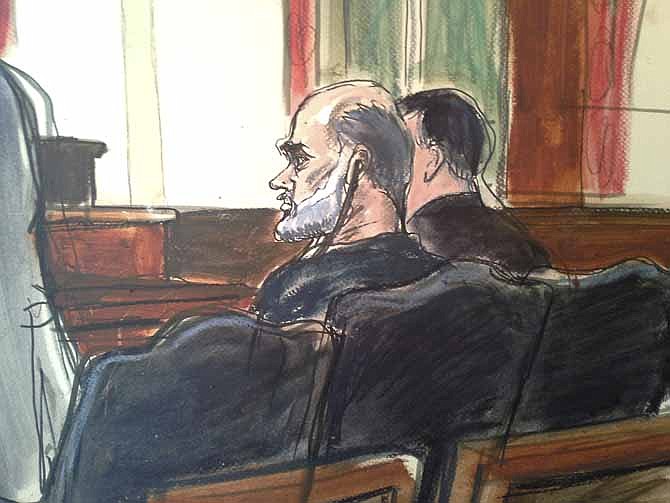WASHINGTON (AP) - Sulaiman Abu Ghaith, the charismatic al-Qaida spokesman, fundraiser and son-in-law to Osama bin Laden, is likely to have a vast trove of knowledge about the terror network's central command but not much useful information about current threats or plots, intelligence officials and other experts say.
Abu Ghaith pleaded not guilty Friday to conspiring to kill Americans in propaganda videos that warned of further assaults against the United States as devastating as the Sept. 11, 2001, attacks on the World Trade Center and the Pentagon that killed nearly 3,000 people.
Believed to be more of a strategic player in bin Laden's inner circle than an operational plotter, Abu Ghaith would be the highest-ranking al-Qaida figure to stand trial on U.S. soil since 9/11. Intelligence officials say he may be able to shed new light on al-Qaida's inner workings - concerning al-Qaida's murky dealings in Iran over the past decade, for example - but probably will have few details about specific or imminent ongoing threats.
He gave U.S. officials a 22-page statement after his Feb. 28 arrest in Jordan, according to prosecutors. They would not describe the statement.
Bearded and balding, Abu Ghaith said little during the 15-minute hearing in U.S. District Court in New York - in lower Manhattan just blocks from Ground Zero - and displayed none of the finger-wagging or strident orations that marked his propaganda in the days and months after 9/11.
Through an interpreter, Judge Lewis A. Kaplan asked whether he understood his rights. Abu Ghaith nodded and said, "Yes." Asked whether he had money to hire an attorney, he shook his head and said no. He nodded and said yes when asked whether he had signed an affidavit describing his financial situation.
Kaplan promised to set a trial date when the case returns to court on April 8. Bail was not requested, and none was set. Abu Ghaith's lawyer declined comment after the hearing.
The fact that the defendant is being tried in federal district court is controversial in itself. Republicans are criticizing the Obama administration for bringing Abu Ghaith to New York instead of sending him to the military detention center at Guantanamo Bay, Cuba.
President Barack Obama has promised to close Guantanamo, where terror detainees generally have fewer legal rights and due process than they would have in a U.S. federal court. But critics say a suspect like Abu Ghaith should be held at Guantanamo and treated as an enemy combatant rather than a "common criminal" with full rights in an everyday court.

